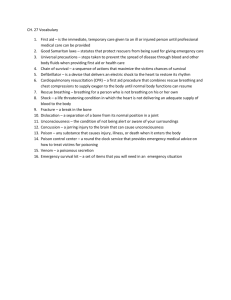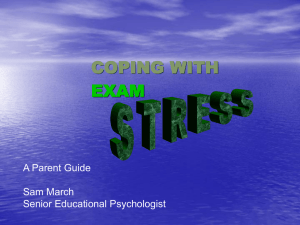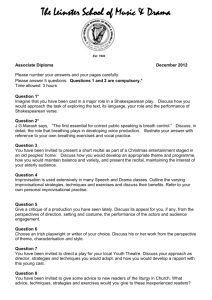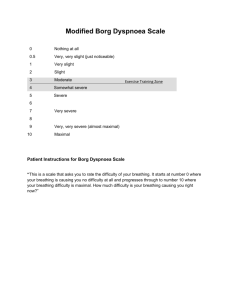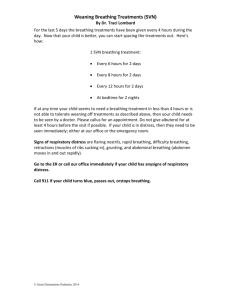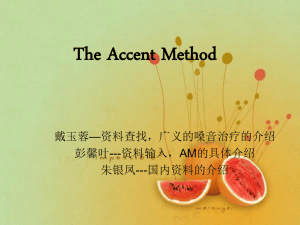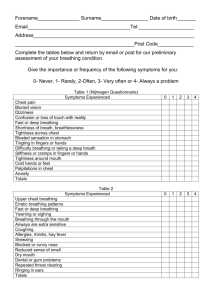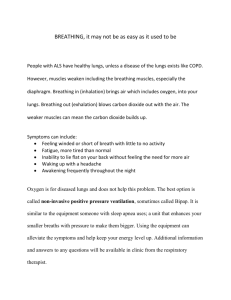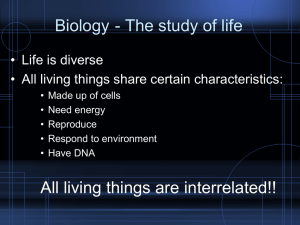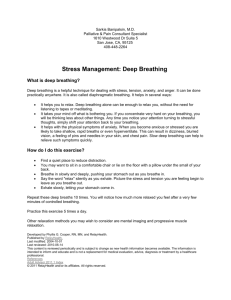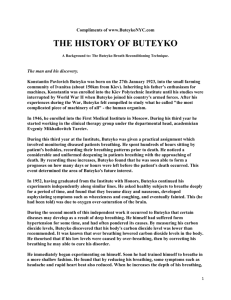thematic plan individual works 1 cours pharm
advertisement
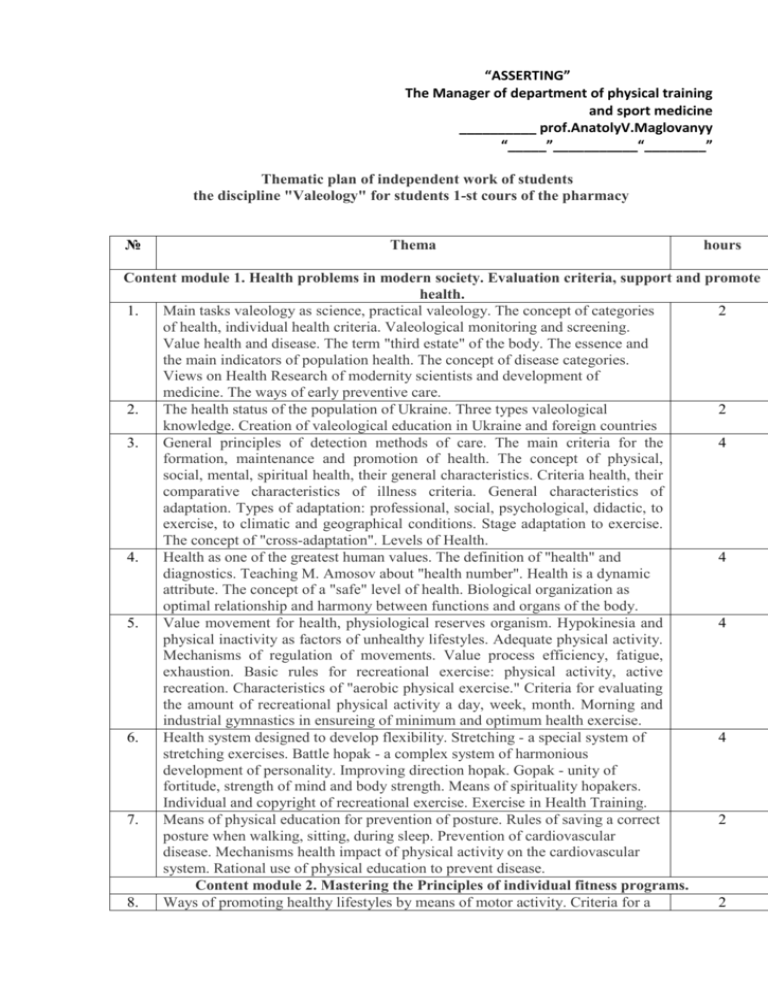
“ASSERTING” The Manager of department of physical training and sport medicine __________ prof.AnatolyV.Maglovanyy “_____”___________“________” Thematic plan of independent work of students the discipline "Valeology" for students 1-st cours of the pharmacy № Thema hours Content module 1. Health problems in modern society. Evaluation criteria, support and promote health. 1. Main tasks valeology as science, practical valeology. The concept of categories 2 of health, individual health criteria. Valeological monitoring and screening. Value health and disease. The term "third estate" of the body. The essence and the main indicators of population health. The concept of disease categories. Views on Health Research of modernity scientists and development of medicine. The ways of early preventive care. 2. The health status of the population of Ukraine. Three types valeological 2 knowledge. Creation of valeological education in Ukraine and foreign countries 3. General principles of detection methods of care. The main criteria for the 4 formation, maintenance and promotion of health. The concept of physical, social, mental, spiritual health, their general characteristics. Criteria health, their comparative characteristics of illness criteria. General characteristics of adaptation. Types of adaptation: professional, social, psychological, didactic, to exercise, to climatic and geographical conditions. Stage adaptation to exercise. The concept of "cross-adaptation". Levels of Health. 4. Health as one of the greatest human values. The definition of "health" and 4 diagnostics. Teaching M. Amosov about "health number". Health is a dynamic attribute. The concept of a "safe" level of health. Biological organization as optimal relationship and harmony between functions and organs of the body. 5. Value movement for health, physiological reserves organism. Hypokinesia and 4 physical inactivity as factors of unhealthy lifestyles. Adequate physical activity. Mechanisms of regulation of movements. Value process efficiency, fatigue, exhaustion. Basic rules for recreational exercise: physical activity, active recreation. Characteristics of "aerobic physical exercise." Criteria for evaluating the amount of recreational physical activity a day, week, month. Morning and industrial gymnastics in ensureing of minimum and optimum health exercise. 6. Health system designed to develop flexibility. Stretching - a special system of 4 stretching exercises. Battle hopak - a complex system of harmonious development of personality. Improving direction hopak. Gopak - unity of fortitude, strength of mind and body strength. Means of spirituality hopakers. Individual and copyright of recreational exercise. Exercise in Health Training. 7. Means of physical education for prevention of posture. Rules of saving a correct 2 posture when walking, sitting, during sleep. Prevention of cardiovascular disease. Mechanisms health impact of physical activity on the cardiovascular system. Rational use of physical education to prevent disease. Content module 2. Mastering the Principles of individual fitness programs. 8. Ways of promoting healthy lifestyles by means of motor activity. Criteria for a 2 9. 10. 11. 12. 13. 14. 15. healthy lifestyle, their comparative characteristics of the criteria unhealthy lifestyle. Basic principles of health food. Diet. Recommendations in nutrition foreign scientists, "pyramid valeological food". Metabolism and Health. Fatigue as a physiological condition of the body. Meaning fatigue. Characteristics of fatigue in recreational training. General characteristics of the outward signs of fatigue. Exhaustion as a pathological condition of the body. Signs of fatigue. Fatigue as a subjective human experiences. Rules of proper breathing. Advantages of nasal breathing. Particular feature of implementation of inspiration and expiration. General rules for useing of full cycle breath at rest. General requirenments in the process of breathing while performing physical and breathing exercises. Technology major types of breathing and control its execution. The concept of a full breath: phase and the ratio between them. Formation of airway skills in the performance of acyclic exercises. Fitness breathing. Exercise as a factor in increasing mental and physical performance rights. Types of exercise. Breathing and Health. Method of breath AN Strelnikovoj, KP Buteyko. Breathing exercises for special purposes by K. Dineyky. Learning proper breathing while performing strength exercises. The technique of relaxing, refreshing and mobilizing breathing. Methods of load control while performing breathing exercises. Terms assembly complex health breathing exercises. Features of exercise as anti-stress agent. Features reaction trained organism to stressful factors. Exercise as a natural tranquilizer. The role of physical exercise ¬ them in increasing the intensity of metabolism of catecholamines. Effect of physical activity on mental health of a person. The principles and ways of its implementation in the health training. Curative effect of physical activity of moderate intensity. Featured normal loads increase in recreational training from lesson to lesson, weekly, within a single session. Planning of health training. Relevance of motor activity to individual paticular feature of human. Features resuscitation in drowning. First aid for hypothermia and frostbite. First aid for overheating, heat and sunstroke. First aid for injuries (fractures, sprains, damaged). First aid for acute pathological conditions. First aid for injuries and pathological conditions during exercise. Total: 2 2 2 2 4 4 2 42
